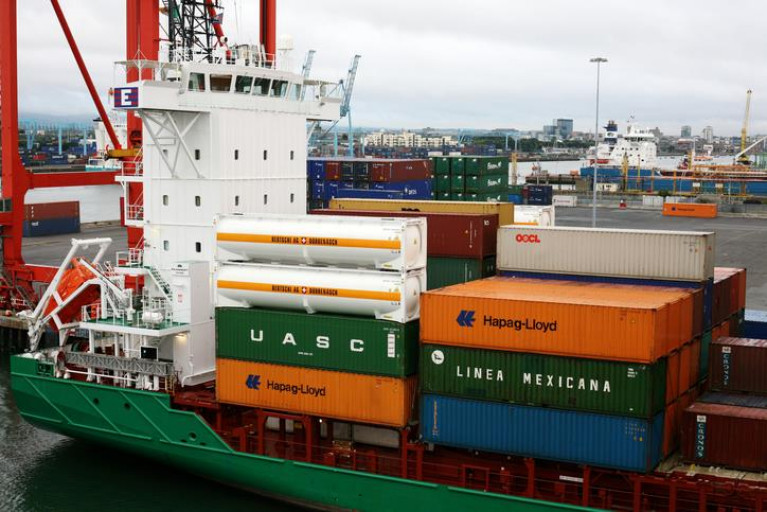Displaying items by tag: IrelandEurope
An additional load-on/ load -off (lo-lo) containership MV Music has been announced by Irish Continental Group (ICG) to serve their container division EUCON, writes Jehan Ashmore.
Music starts the new career this Friday, 1 January 2021, by operating a weekly schedule between Ireland and mainland Europe, further boosting capacity in the New Year which is also to see roll-on/ roll-off (ro-ro) operators launch new freight ferry services in bypassing a Brexit UK.
Introduction of the 803TEU Music will increase EUCON's capacity by 17% on services connecting Belfast, Dublin and Cork with Anterp, Belgium and Rotterdam in The Netherlands.
When Music enters service on New Year's Day, the Portuguese flagged vessel will bring the fleet, Afloat.ie counts to 11 chartered lo-lo vessels.
The extra containership allows EUCON in 2021 to offer the market the most comprehensive sailing schedule to date with capacity upswings right across the operators range of services and ports of call.
Currently the Music, Afloat also adds is at Antwerp anchorage having made a repositioning voyage from Thessaloniki in Greece.
Direct Alternative Route of Ireland-Europe Must Be Found - Hauliers
An alternative route to Europe Irish hauliers and exporters said must be found to avoid potentially massive queues at British ferryports from the beginning of January.
A leaked British government letter (yesterday) suggests exporters to the EU face possible truck queues of up to 7,000 vehicles-long at ports if the industry does not prepare.
In the letter, the UK Minister responsible for no deal planning outlined "a reasonable worst case scenario"
Michael Gove said between 30-50% of trucks crossing the English Channel will not be ready and he warned that UK imports and exports could be adversely affected for up to three months.
The Cabinet Office document states that, in its reasonable worst-case scenario, between 30-50% of trucks crossing the Channel will not be ready for the new regulations coming into force on 1 January 2021.
More on this story reports RTE News here.
Increasing pressure, writes The Irish Times, is building on the Government to advance plans for alternative shipping routes bypassing Britain to avoid severe delays at English Channel ports stemming from a possible no-deal Brexit.
Potential risks to the key “landbridge” transit route for Irish traders through the UK to Europe have escalated in light of the UK government’s no-deal plans which show severe disruptions at British ports.
Operation Yellowhammer, the secret UK planning dossier leaked over the weekend, warns of significant interruptions at UK ports that could last up to three months after Brexit.
The report says up to 85 per cent of lorries travelling across the English Channel may not be ready for French customs, creating delays of two days and a severe bottleneck for Irish hauliers bound for Europe.
About 150,000 haulage units use the landbridge every year, leading to concerns among Irish businesses that there is insufficient capacity on direct shipping routes to Europe to offer an alternative for this traffic.
For more here into the ferry operators directly serving continental Europe.






























































